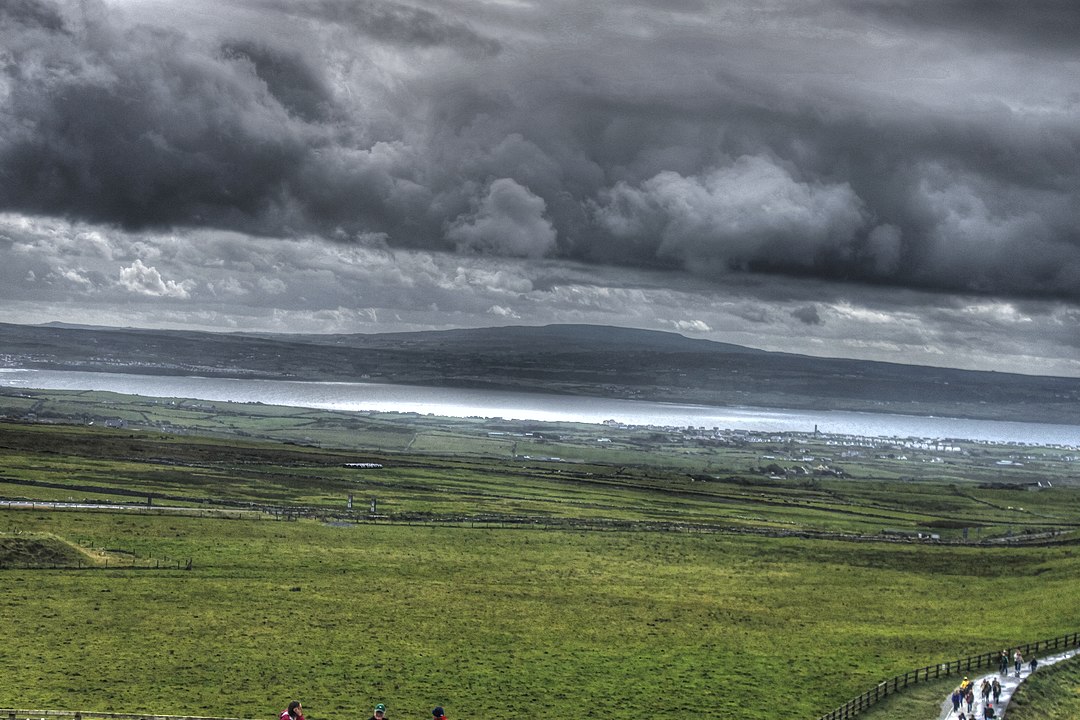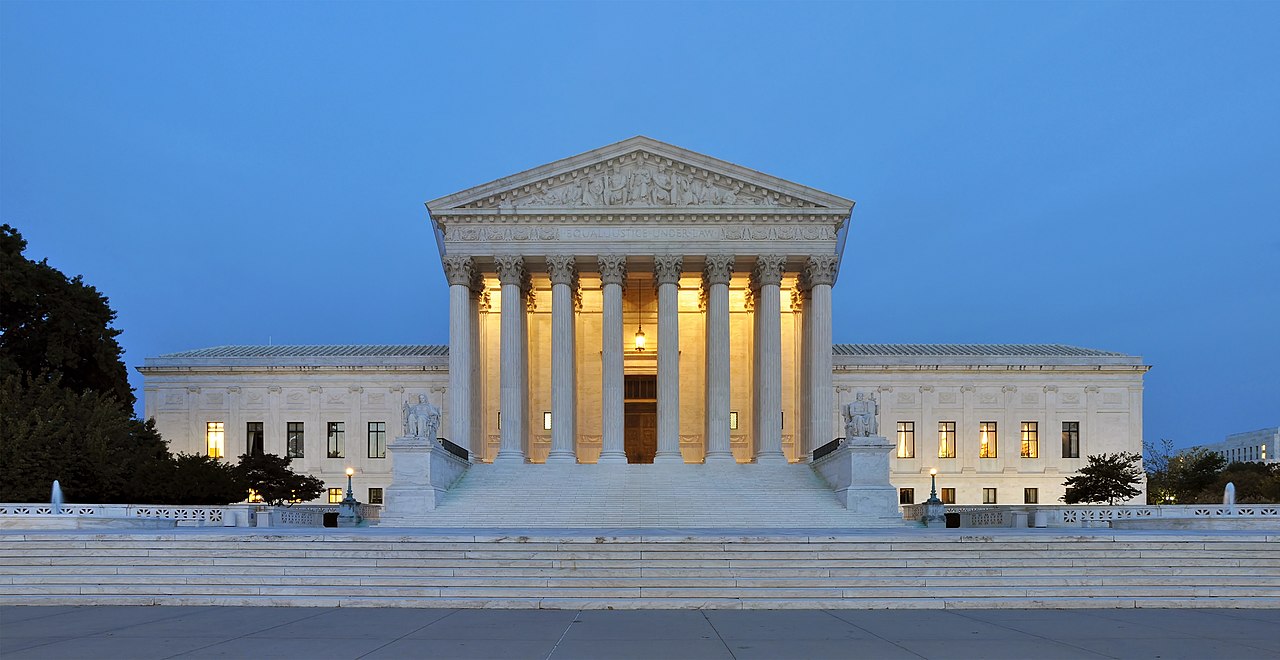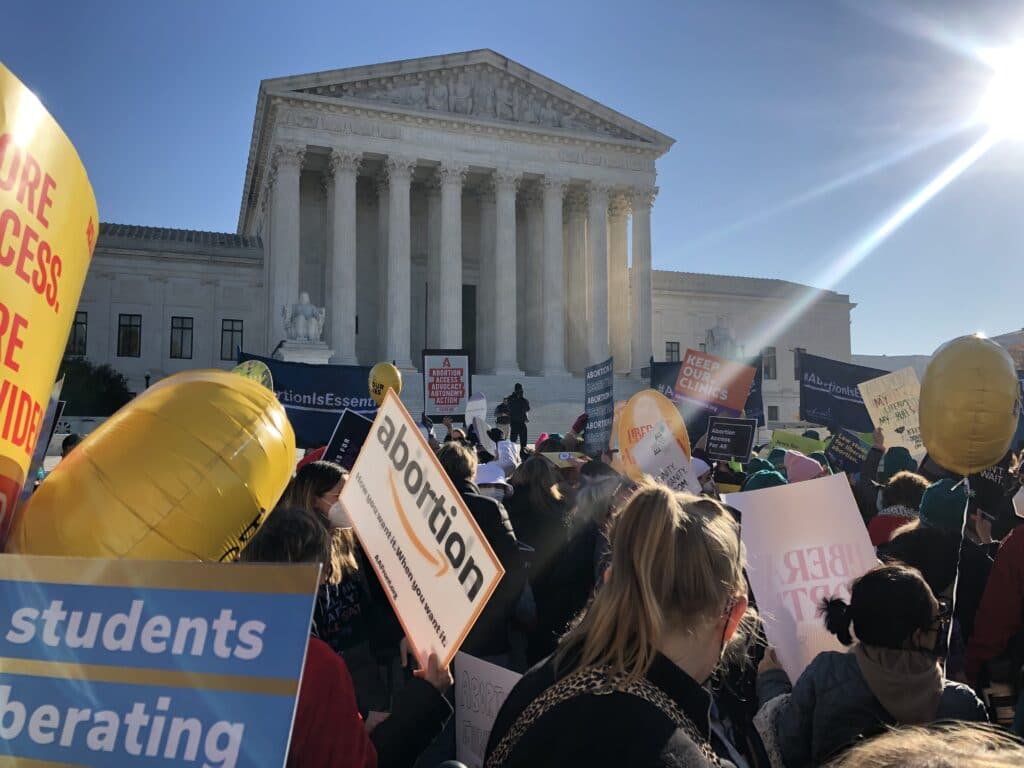|
Pastor Hal mentioned in his pastoral letter that this recent decision of the Supreme Court could be felt as a gut-punch. Indeed, I felt it that way along with several more in recent years; a deadly riot against a secure election, the functional end of the Voting Rights Act, a President telling a sexist and racist group to stand-by, and more. There is a thread in all of these happenings. Pulitzer Prize winning author Isabel Wilkerson in her book Caste noted the power of something called “dominant group status threat”: the sense that the out group is doing too well and represents a threat to the dominant caste. For example, the single strongest demographic predictor of those who broke into the Capitol during the January 6th insurrection was if they lived in a county not where Trump won big, but where Biden won and where there was a significant decline in the percentage of the non-Hispanic white population. Make America Great Again appeals, of course, to a past idealized vision of America which inevitably is an America which was more racist, sexist, heterosexist, and generally less inclusive than the one we have and the one that is emerging. The appeal and the sinful temptation is to support one’s self esteem and to manage the anxiety of change, whether social, religious, economic, racial or environmental, with an appeal to an old status quo of white, male, Christian parental authority (aka patriarchy). Enter the recent Dobbs decision overturning Roe v Wade. New York times reporter Adam Liptak, who covers the Supreme Court, describes the five Republican-appointed justices besides Chief Justice John Roberts as “an impatient, ambitious majority,” a majority created by those driven by “dominant group status threat” energy using whatever means necessary to take us back to some version of that past. In such times, let us be clear that this is not the Way of Jesus. In such times, let us be faithful to the God of Liberation and Justice. In such times, let us keep on keeping on, toward the Beloved Community. In the midst of all the gut-punches I have been drawn to a poem by the late American essayist and poet Adrienne Rich and I offer it as an inspiration to faith: My heart is moved by all I cannot save: so much has been destroyed I have to cast my lot with those who age after age, perversely, with no extraordinary power, reconstitute the world. - JT AuthorThe Rev. J.T. Smiedendorf has been a UCC minister since 2001, serving churches in Oregon, Colorado, Wyoming, and Washington. He has a particular passion for reclaiming the earthy, embodied, and experiential aspect of Christian spiritual practice. He and his wife Allison are co-founders of The Sanctuary for Sacred Union, an inter-spiritual initiative, focused on spiritual growth, wholeness, and transformation. He will be our Bridge Associate Minister until a new settled Associate Minister is called. Dear Plymouth Family,
None of us is surprised about Supreme Court ruling overturning the constitutional right to an abortion guaranteed by the Court back in 1973 in Roe v. Wade. But to some the ruling probably feels like a gut-punch. There are macro issues at stake in this ruling, some of which are not immediately apparent. In the short term, women in roughly half the states that comprise our union will lose access to safe, legal abortions. But the larger issues will continue to ripple for years into the future. One of those issues is the right of women to determine the course of their own health. No one is challenging a man’s right to choose a vasectomy — even though the Roman Catholic Church opposes it. Pope Paul VI’s encyclical said that vasectomy “is equally to be condemned” as is abortion. Yet, we do not hear many (or any) voices in our nation decrying vasectomy. If we can deny a woman’s right to choose, what other rights is our nation prepared to deny? According to the National Institutes of Health, “Black women have been experiencing induced abortions at a rate nearly 4 times that of White women for at least 3 decades, and likely much longer…. In the current unfolding environment, there may be no better metric for the value of Black lives.” Is it a coincidence that the Supreme Court ruling will affect Black women four times as much as it does White women? Justice Clarence Thomas, in a concurring opinion, said that the Supreme Court “should reconsider” its past in codifying rights to contraception access, same-sex relationships and same-sex marriage. I know some of our LGBTQ members are already feeling the rumblings of this opinion. It’s Pride month, and it is probably no coincidence that hate-filled vandals destroyed the rainbow flags on our Prospect Road sign this week. Another implication beyond abortion itself is the brokenness of the national process of judicial confirmation. Has the court become over-politicized? Some would say so. It will be interesting to see how we navigate the course ahead, when Gallup shows that 80% of Americans support legal abortion. Where does the UCC stand? Our denomination has been a standard-bearer for reproductive justice. I encourage you to see our denomination’s web page to learn more. Our Eighth General Synod, in 1971 (two years before Roe v. Wade), approved a resolution affirming choice. “The Eighth General Synod of the United Church of Christ calls for the repeal of all legal prohibitions of physician-performed abortions. This would take abortion out of the realm of penal law and make voluntary and medially safe abortions legally available to all women.” Further resolutions were passed by General Synods in 1973, 1977, 1979, 1981, 1987, 1989, and 1991. Other mainline Protestant denominations have similar stances. Many Evangelical churches were initially mute on the issue of abortion and supportive of birth control. But since the fundamentalist takeover in some denominations and the rise of the Christian Right, even the use of birth control is in question in some quarters. (In a recent survey, 77% of White Evangelicals saw abortion as morally unacceptable. Most American Catholics support legal access to abortion.) Where do you stand? One of the guideposts of our UCC tradition is that matters of conscience are left to the members of our congregations under the guidance of the Holy Spirit. There is likely a range of opinion at Plymouth about whether abortion is ethically acceptable. Yet I am certain that only a handful of our members who would disagree that abortion should be safe and legal. Over the years of my ministry among you, two conversations with women stick out on this subject. One discussion was with a member who was a women’s health nurse practitioner who had moved to Colorado from the South. Her perspective was that abortion should be “safe, legal, and rare.” And she remarked that she had patients who, in her view, misused abortion as a primary form of birth control. Her view was that abortion should be a last resort, and that it should be easily accessible to any woman. Another conversation happened years ago with a married woman and her husband who came to speak with me and Sharon Benton. They were over 50 and had been using a dependable form of birth control, which had failed, resulting in an unwanted and dangerous pregnancy. Their concern was the ethical dimension of a decision to end the pregnancy. Both Sharon and I shared our perspective that abortion was ethically acceptable, and we offered to accompany them if they chose to end the pregnancy. Perhaps you’ve had an abortion yourself, or your partner, mom, sister, daughter, or friend has chosen to end a pregnancy. I’ve never known anyone for whom abortion was an easy way out or a simple decision. But during all of my adult years, it has been safe and legal. For some of our sisters, this will no longer be the case. I don’t know where this road will lead, but we will follow Jesus’ commitment to compassion and justice. And we will walk together. Blessings, 5/4/2022 A Faith Response to Roe v. Wade News: Special Message from Rev. Jane Anne FergusonRead Now Dear Plymouth,
I am writing as one of your pastors to say we are all in this together as we face the news of the leaked draft document from the Supreme Court that seems to give us a glimpse into the future of Roe v. Wade and abortion rights in this country. I know many of you are reeling, as am I. Over the last several years, we have endured blow after blow of polarization and the injustice it brings, particularly to those who are less advantaged through gender, sexual orientation, economics, education, or by virtue of the color of their skin. This news that impacts those who live in female bodies and their right to choose what is best for them in their own bodies is frightening and infuriating to those of us who are deeply pro-choice. Abortion is never to be taken lightly! AND yet each person who can become pregnant has a sacred right to be able to choose what is best for them and for their family. (I am intentionally not using the label, "woman/women," so that our siblings who are born into female bodies and yet consider themselves non-binary or gender non-conforming are included in our concern. They, too, may become pregnant or could have it forced upon them by violence. They, too, along with lesbian and cis-gendered women, may need the ability and right to choose what is best for their bodies and lives.) I want to remind you that the United Church of Christ has been proactive in addressing issues of reproductive justice since the 1970's. You can find the Reproductive Justice page on our national UCC website. There is a wonderfully succinct handout on the UCC stance that was given to youth in a class on Reproductive Justice at the 2012 National Youth Event. I found this short piece a helpful place to start in understanding our denominational history with this important justice work. No matter our personal views on abortion, let us stand together in concern for those whose life circumstances bring them to the place of needing to consider choosing abortion. Let us hold them in our prayers, particularly at this time when in many states their right to choose is in danger. Let us hold those in the medical profession in our prayers as well. They are navigating very difficult legal and ethical times as they seek to provide the best care possible for their patients. Let us hold the lawmakers we have elected in our prayers that they may come to see the justice issues of abortion in broader perspectives. Let us be grateful that here in Colorado abortion is protected by law. May it continue to be so and if necessary, may Colorado be a safe haven for those in need of abortion rights. With you on the journey, |
Details
|





 RSS Feed
RSS Feed